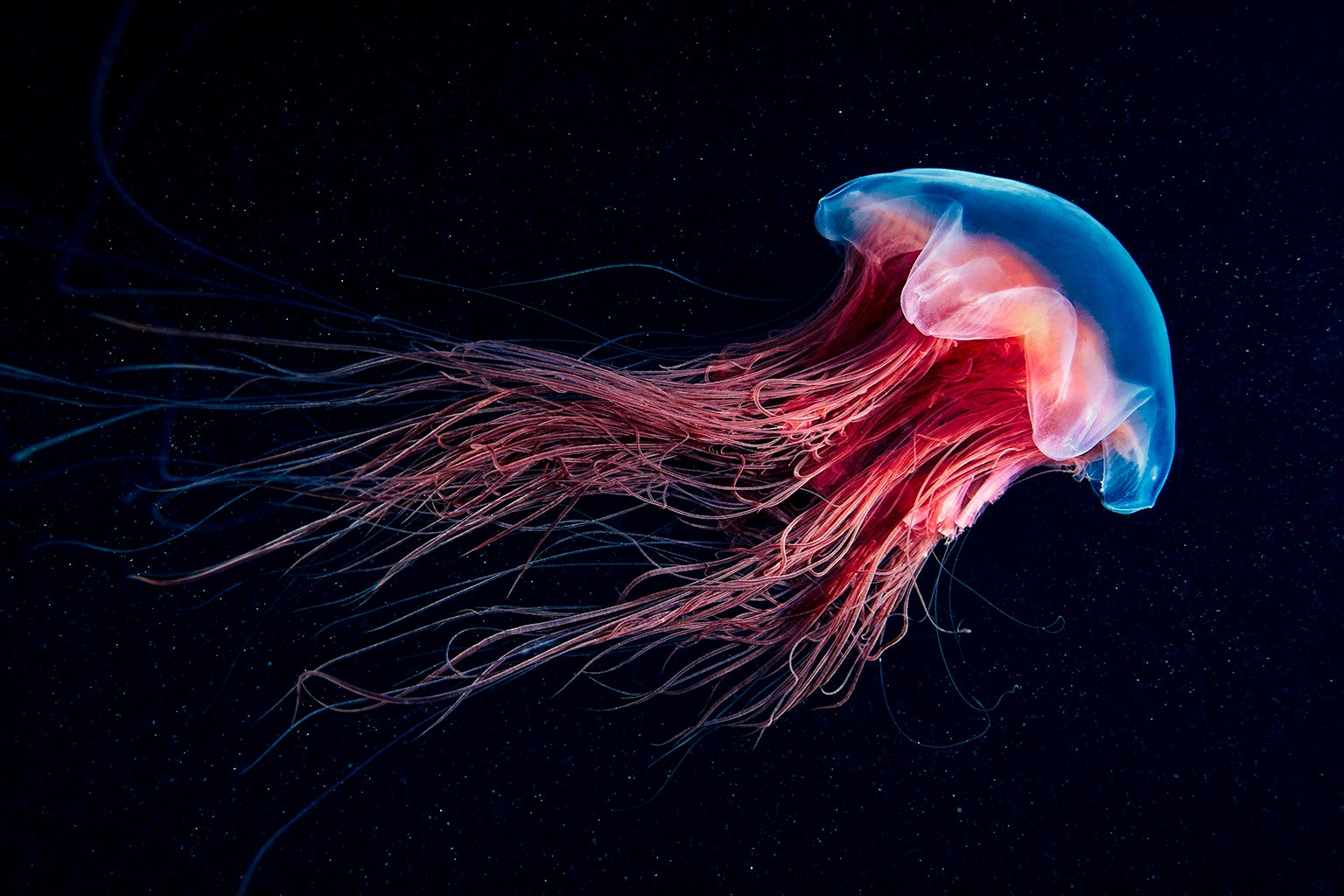
Scientists Discover Enigmatic Jellyfish in Depths of the OceanScientists Discover Enigmatic Jellyfish in Depths of the Ocean A team of intrepid scientists has stumbled upon a fascinating new species of jellyfish while exploring the enigmatic depths of the Mariana Trench. This discovery has shed light on the incredible diversity and adaptability of life within the ocean’s darkest and most extreme environments. Named Vitreolacus luciater, the jellyfish possesses a translucent body that resembles a miniature glass bell. Its namesake “luciater” refers to the extraordinary bioluminescent organs that adorn its bell, emitting a dazzling display of blue and green light. Scientists believe Vitreolacus luciater uses its bioluminescence to attract prey and communicate with potential mates. Its bell-shaped body, lined with a network of tentacles, acts as a delicate net, capturing unsuspecting organisms from the surrounding darkness. “This discovery is a testament to the sheer wonder and mystery that lies beneath the ocean’s surface,” exclaimed Dr. Anya Petrova, the lead researcher on the expedition. “Vitreolacus luciater represents an entirely new genus and species, expanding our knowledge of the biodiversity within the Mariana Trench.” The jellyfish’s adaptation to the extreme conditions of the trench, where pressures can reach up to 1,000 times the atmospheric pressure at sea level, is particularly remarkable. Its body structure and bioluminescence suggest it has evolved specialized mechanisms to survive in this harsh environment. Scientists hope that further research on Vitreolacus luciater will shed light on the ecological role of bioluminescent organisms in the deep sea and provide insights into the evolutionary adaptations that enable life to flourish in such extreme habitats. This discovery highlights the importance of deep-sea exploration in expanding our understanding of the planet’s ecosystems and the interconnectedness of life across different environments. It serves as a reminder that even in the most remote and unforgiving regions of our world, life finds a way to adapt and thrive.
Posted inNews